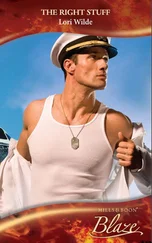Tom Wolfe - The Right Stuff
Здесь есть возможность читать онлайн «Tom Wolfe - The Right Stuff» весь текст электронной книги совершенно бесплатно (целиком полную версию без сокращений). В некоторых случаях можно слушать аудио, скачать через торрент в формате fb2 и присутствует краткое содержание. Жанр: Современная проза, на английском языке. Описание произведения, (предисловие) а так же отзывы посетителей доступны на портале библиотеки ЛибКат.
- Название:The Right Stuff
- Автор:
- Жанр:
- Год:неизвестен
- ISBN:нет данных
- Рейтинг книги:3 / 5. Голосов: 1
-
Избранное:Добавить в избранное
- Отзывы:
-
Ваша оценка:
- 60
- 1
- 2
- 3
- 4
- 5
The Right Stuff: краткое содержание, описание и аннотация
Предлагаем к чтению аннотацию, описание, краткое содержание или предисловие (зависит от того, что написал сам автор книги «The Right Stuff»). Если вы не нашли необходимую информацию о книге — напишите в комментариях, мы постараемся отыскать её.
The Right Stuff — читать онлайн бесплатно полную книгу (весь текст) целиком
Ниже представлен текст книги, разбитый по страницам. Система сохранения места последней прочитанной страницы, позволяет с удобством читать онлайн бесплатно книгу «The Right Stuff», без необходимости каждый раз заново искать на чём Вы остановились. Поставьте закладку, и сможете в любой момент перейти на страницу, на которой закончили чтение.
Интервал:
Закладка:
The talking and drinking began at the beer call, and then the boys would break for dinner and come back afterward and get more wasted and more garrulous or else more quietly fried, drinking good cheap PX booze until 2 a.m. The night was young! Why not get the cars and go out for a little proficiency run? It seemed that every fighter jock thought himself an ace driver, and he would do anything to obtain a hot car, especially a sports car, and the drunker he was, the more convinced he would be about his driving skills, as if the right stuff, being indivisible, carried over into any enterprise whatsoever, under any conditions. A little proficiency run, boys! (There's only one way to find out!) And they would roar off in close formation from, say, Nellis Air Force Base, down Route 15, into Las Vegas, barreling down the highway, rat-racing, sometimes four abreast, jockeying for position, piling into the most listless curve in the desert flats as if they were trying to root each other out of the groove at the Rebel 500—and then bursting into downtown Las Vegas with a rude fraternal roar like the Hell's Angels—and the natives chalked it up to youth and drink and the bad element that the Air Force attracted. They knew nothing about the right stuff, of course.
More fighter pilots died in automobiles than in airplanes. Fortunately, there was always some kindly soul up the chain to certify the papers "line of duty," so that the widow could get a better break on the insurance. That was okay and only proper because somehow the system itself had long ago said Skol! and Quite right! to the military cycle of Flying & Drinking and Drinking & Driving, as if there were no other way. Every young fighter jock knew the feeling of getting two or three hours' sleep and then waking up at 5:30 a.m. and having a few cups of coffee, a few cigarettes, and then carting his poor quivering liver out to the field for another day of flying. There were those who arrived not merely hungover but still drunk, slapping oxygen tank cones over their faces and trying to burn the alcohol out of their systems, and then going up, remarking later: "I don't advise it, you understand, but it can be done." (Provided you have the right stuff, you miserable pudknocker.)
Air Force and Navy airfields were usually on barren or marginal stretches of land and would have looked especially bleak and Low Rent to an ordinary individual in the chilly light of dawn. But to a young pilot there was an inexplicable bliss to coming out to the flight line while the sun was just beginning to cook up behind the rim of the horizon, so that the whole field was still in shadow and the ridges in the distance were in silhouette and the flight line was a monochrome of Exhaust Fume Blue, and every little red light on top of the water towers or power stanchions looked dull, shriveled, congealed, and the runway lights, which were still on, looked faded, and even the landing lights on a fighter that had just landed and was taxiing in were no longer dazzling, as they would be at night, and looked instead like shriveled gobs of candlepower out there—and yet it was beautiful, exhilarating!—for he was revved up with adrenalin, anxious to take off before the day broke, to burst up into the sunlight over the ridges before all those thousands of comatose souls down there, still dead to the world, snug in home and hearth, even came to their senses. To take off in an F-100 at dawn and cut in the afterburner and hurtle twenty-five thousand feet up into the sky so suddenly that you felt not like a bird but like a trajectory, yet with full control, full control of five tons of thrust, all of which flowed from your will and through your fingertips, with the huge engine right beneath you, so close that it was as if you were riding it bareback, until you leveled out and went supersonic, an event registered on earth by a tremendous cracking boom that shook windows, but up here only by the fact that you now felt utterly free of the earth—to describe it, even to wife, child, near ones and dear ones, seemed impossible. So the pilot kept it to himself, along with an even more indescribable… an even more sinfully inconfessable… feeling of superiority, appropriate to him and to his kind, lone bearers of the right stuff.
From up here at dawn the pilot looked down upon poor hopeless Las Vegas (or Yuma, Corpus Christi, Meridian, San Bernardino, or Dayton) and began to wonder: How can all of them down there, those poor souls who will soon be waking up and trudging out of their minute rectangles and inching along their little noodle highways toward whatever slots and grooves make up their everyday lives—how could they live like that, with such earnestness, if they had the faintest idea of what it was like up here in this righteous zone?
But of course! Not only the washed-out, grounded, and dead pilots had been left behind—but also all of those millions of sleepwalking souls who never even attempted the great gamble. The entire world below… left behind . Only at this point can one begin to understand just how big, how titanic, the ego of the military pilot could be. The world was used to enormous egos in artists, actors, entertainers of all sorts, in politicians, sports figures, and even journalists, because they had such familiar and convenient ways to show them off. But that slim young man over there in uniform, with the enormous watch on his wrist and the withdrawn look on his face, that young officer who is so shy that he can't even open his mouth unless the subject is flying—that young pilot—well, my friends, his ego is even bigger !—so big, it's breathtaking ! Even in the 1950's it was difficult for civilians to comprehend such a thing, but all military officers and many enlisted men tended to feel superior to civilians. It was really quite ironic, given the fact that for a good thirty years the rising business classes in the cities had been steering their sons away from the military, as if from a bad smell, and the officer corps had never been held in lower esteem. Well, career officers returned the contempt in trumps. They looked upon themselves as men who lived by higher standards of behavior than civilians, as men who were the bearers and protectors of the most important values of American life, who maintained a sense of discipline while civilians abandoned themselves to hedonism, who maintained a sense of honor while civilians lived by opportunism and greed. Opportunism and greed: there you had your much-vaunted corporate business world. Khrushchev was right about one thing: when it came time to hang the capitalist West, an American businessman would sell him the rope. When the showdown came—and the showdowns always came—not all the wealth in the world or all the sophisticated nuclear weapons and radar and missile systems it could buy would take the place of those who had the uncritical willingness to face danger, those who, in short, had the right stuff.
In fact, the feeling was so righteous, so exalted, it could become religious. Civilians seldom understood this, either. There was no one to teach them. It was no longer the fashion for serious writers to describe the glories of war. Instead, they dwelt upon its horrors, often with cynicism or disgust. It was left to the occasional pilot with a literary flair to provide a glimpse of the pilot's self-conception in its heavenly or spiritual aspect. When a pilot named Robert Scott flew his P-43 over Mount Everest, quite a feat at the time, he brought his hand up and snapped a salute to his fallen adversary. He thought he had defeated the mountain, surmounting all the forces of nature that had made it formidable. And why not? "God is my co-pilot," he said—that became the title of his book—and he meant it. So did the most gifted of all the pilot authors, the Frenchman Antoine de Saint-Exupery. As he gazed down upon the world… from up there… during transcontinental flights, the good Saint-Ex saw civilization as a series of tiny fragile patches clinging to the otherwise barren rock of Earth. He felt like a lonely sentinel, a protector of those vulnerable little oases, ready to lay down his life in their behalf, if necessary; a saint, in short, true to his name, flying up here at the right hand of God. The good Saint-Ex! And he was not the only one. He was merely the one who put it into words most beautifully and anointed himself before the altar of the right stuff.
Читать дальшеИнтервал:
Закладка:
Похожие книги на «The Right Stuff»
Представляем Вашему вниманию похожие книги на «The Right Stuff» списком для выбора. Мы отобрали схожую по названию и смыслу литературу в надежде предоставить читателям больше вариантов отыскать новые, интересные, ещё непрочитанные произведения.
Обсуждение, отзывы о книге «The Right Stuff» и просто собственные мнения читателей. Оставьте ваши комментарии, напишите, что Вы думаете о произведении, его смысле или главных героях. Укажите что конкретно понравилось, а что нет, и почему Вы так считаете.











